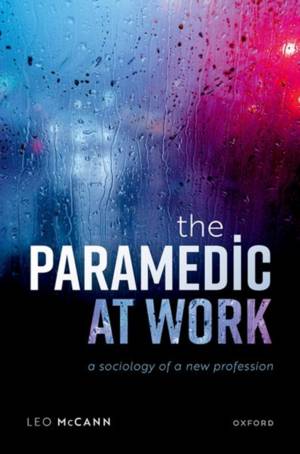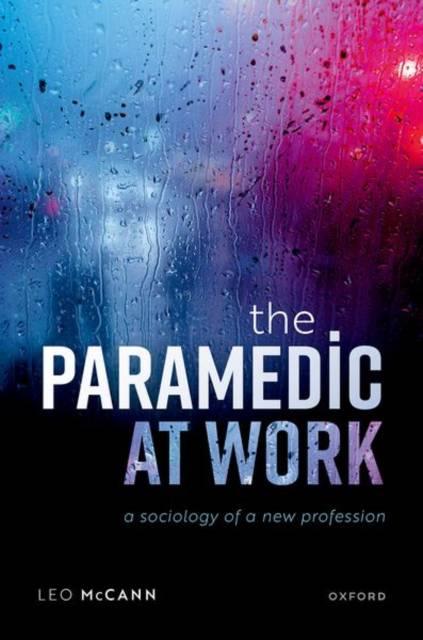
- Retrait gratuit dans votre magasin Club
- 7.000.000 titres dans notre catalogue
- Payer en toute sécurité
- Toujours un magasin près de chez vous
- Retrait gratuit dans votre magasin Club
- 7.000.0000 titres dans notre catalogue
- Payer en toute sécurité
- Toujours un magasin près de chez vous
72,45 €
+ 144 points
Description
Ambulance services and paramedics perform critical roles in contemporary healthcare economies. Trained to work in the field and respond rapidly to emergencies, societies have come to increasingly rely on ambulance services to deliver urgent care. Never has this need been more acute than in recent years given intense social inequality, overstretched and underfunded health systems, and deadly pandemics. Leo McCann offers the first book-length study of the paramedic profession in England. Based on in-depth interviews and ethnographic observation, The Paramedic at Work provides a detailed account of the complex realities of work in this fascinating occupation. Chapters explore the nature of work 'out on the road', the peculiarities of ambulance organizational culture, the intensity of workplace stress and burnout, and the current and future trajectory of paramedic professionalism. The book documents the unique paradoxes experienced by those employed in this line of work. Ambulance staff are trained to handle life-threatening trauma and disease, but most callouts consist of unplanned primary care. Paramedic work features wide autonomy but is also bound into an array of micromanaging performance indicators. Paramedics are trusted and respected in society but the profession is poorly understood and employers can be unsupportive. However, no matter how intense the personal struggles can be, paramedic work also offers rare opportunities for meaningful and socially valued work. This book shows that the role and status of the paramedic is rapidly moving from a manual occupation rooted in first aid and transportation, to a clinical profession of increasing scope, versatility, and social respect.
Spécifications
Parties prenantes
- Auteur(s) :
- Editeur:
Contenu
- Nombre de pages :
- 272
- Langue:
- Anglais
Caractéristiques
- EAN:
- 9780198816362
- Date de parution :
- 31-10-22
- Format:
- Livre relié
- Format numérique:
- Genaaid
- Dimensions :
- 164 mm x 239 mm
- Poids :
- 566 g

Les avis
Nous publions uniquement les avis qui respectent les conditions requises. Consultez nos conditions pour les avis.






